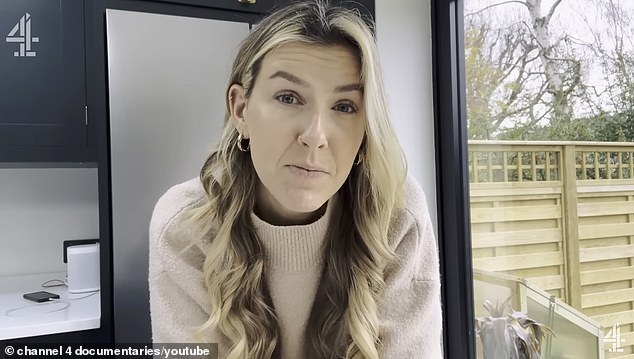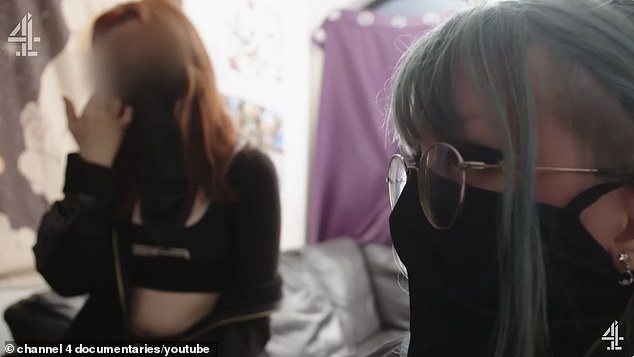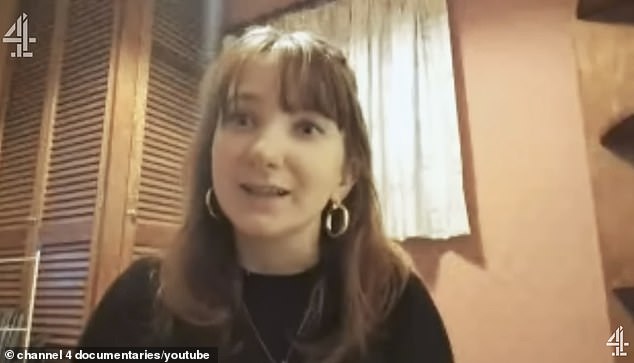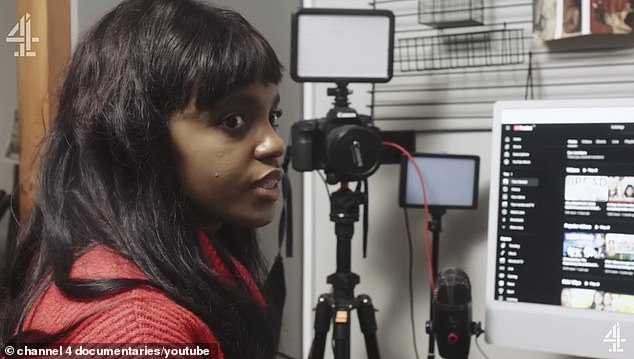Women traumatized by past experiences with men or struggling to find a partner are joining a worrying online community of “Femcels” – the female equivalent of incels. but with hatred directed against men rather than women.
London-based journalist Ellie Flynn delved into the darkest corners of the internet to investigate the hidden world of women who call themselves “Femcels” for a Channel 4 documentary Radicalized: Are Femcels the New Incels?
Incels are typically white, heterosexual men, associated with misogyny, racism, and self-pity, who consider themselves “involuntarily celibate.”
The movement rose to prominence in 2014, when 22-year-old Elliot Rodger killed six people and injured fourteen others at the University of California, Santa Barbara after being radicalized by the incel movement.
But Ellie’s investigation into Femcels revealed a more complex picture than simply “women who hate men.”
A girl called Lauren explained how she never got past the kissing stage and thought she was “very unattractive” and would be alone forever, while Ellie was horrified by images of women cutting and eating their own flesh in “gory” videos.

Journalist Ellie Flynn (pictured), from London, delved into the darkest corners of the internet to investigate the hidden world of women who call themselves Femcels.
Ellie met with a Femcel, who she met on an online forum, to try to understand better.
Al, who has been part of the Femcel community for four years, said: “To me, a Femcel is someone who has accumulated enough experience living with men to develop a disdain for them.
“I don’t really hate (men), I’m constantly afraid, especially in relationships, I don’t really show them emotion, I don’t give them the time of day.
“I’m not single or involuntary, I guess a lot of people would consider me fake, I just share a lot of their opinions.”
Ellie pointed out that for incels, it seems to be “lack of sexual experiences that makes them incels,” but for Femcels like Al, it’s “past experiences with men that make them consider themselves Femcels.” .
Elsewhere, Ellie spoke to a popular YouTube Femcel content creator, known as Kidology, who explained the differences between incels and Femcels.
She said: “Incels really see the world as the problem, particularly modern society – feminism and women’s ability to be picky about their sexual partners. While most Femcels tend to see this as something wrong with them, like their appearance and something they need to work on to eventually find those relationships.
Lauren, who does not identify as Femcel but has built a community of friends on the Femcel forums, revealed that the forms made her feel less alone.
“Unfortunately I’ve never had a relationship, I’ve never experienced anything other than a kiss and I’m ashamed of it, I’m 28 and I feel like I’m going to be 70 and that I lived my life alone.


Al’s roommate (left), (right), who remains anonymous and also explores these dangerous websites, said she met a man on one when she was 14 and he had sexually assaulted her three times.
“It’s scary, depressing and isolating. What’s wrong with me is my facial appearance. I do have body dysmorphia, but I’ve never had anyone attracted to me. Personally, I find myself very unattractive.
“When I go to these communities, you see a lot of people who have experienced the same thing, it’s nice, in a way, to show that you’re not crazy or you’re not wrong. It’s a place I go every day to read about experiences and I feel less alone.
Ellie said the more she spoke to women involved in Femcel communities, the less she worried about the possibility of them committing violence, and the more she worried about their mental health.
However, while Femcel communities may not appear violent, some forums have merged with incel forums, meaning these vulnerable women are exposed to a lot of graphic and horrific content.
After finding Al, Ellie asked to see some of these merged forums and was horrified to see videos of violent rapes being shared.
Al said: “I was sent videos of women being raped. I was around 14 years old.
She said she was exposed to so-called “gore” videos from the age of 11.


Lauren (pictured), who doesn’t identify as Femcel but has built a community of friends on the Femcel forums, revealed the forms made her feel less alone.


Elsewhere, Ellie spoke to a popular Femcel YouTube content creator, known as Kidology, who explained the differences between Incels and Femcels.
Al’s roommate, who has remained anonymous and also explores these dangerous websites, said she met a man on one when she was 14 and he sexually assaulted her threesome times.
Al added: “I actually had a similar relationship when I was 14. I didn’t realize that me saying no and him continuing to do it was wrong at all. This has happened in several relationships.
Women explained that they use the forums because they feel alone and isolated and that the graphic content becomes strangely “addictive.”
They added that they were desensitized to the graphic content shared about them and were learning to “deal with it.”
After asking how likely it is that a Femcel would end up committing a violent act, Al’s roommate said, “These people have been raped, assaulted, intimidated, disowned by their own families and society treats these women like it was your fault that these things happened.to you and that makes the Femcels the most radical.
“Femcels and Incels have similarities when it comes to anxiety, depression, and bad lives. But the way they are internalized by women is a huge difference.
“I think there is potential for a real act of violence. We’ll get there and the world will say “How did she do that”? ) that they needed, and then they won a place.”
“Now women are suffering from mental illnesses more and more. I think something big is going to happen and the world will be shocked.
Elsewhere, Ellie saw graphic content, known as “gore”, which was posted on the shared forum Incel and Femcel, which showed a woman cutting herself and eating her own flesh.
The reporter seemed visibly shocked and disgusted by the content, looking away from the screen and saying “I can’t watch this.”
Al’s roommate said, “It’s something that several people did on the server, I know, it’s hard to watch, but four or five people did it specifically.”
Describing the graphic images, they said: “They cut a square, she’s the one eating it, they bleed, she smiles like it’s funny for her.”
Before being hijacked by men, the term incel was coined in the 1990s by a woman known only as Alana, who used it to describe her own experience of being unable to find a romantic partner or sexual.
She created the website Involuntary Celibacy Project with the goal of making it an inclusive community for people who were going through the same things as her.
Alana eventually passed the site on to someone else and didn’t hear the term again until years later, when she heard about Elliot Rodger describing himself as an incel in online posts before launching in a killing spree.
Elliot, a community college student, killed six people and injured 13 others in shooting and stabbing attacks near the University of California, Santa Barbara, in 2014.
“It’s frustrating,” she said the Guardian in April. “I feel like I did something important, for the good of the world – which then turned out to also be a weapon.”
Radicalized: are Femcels the new Incels? is available to stream on Channel 4
